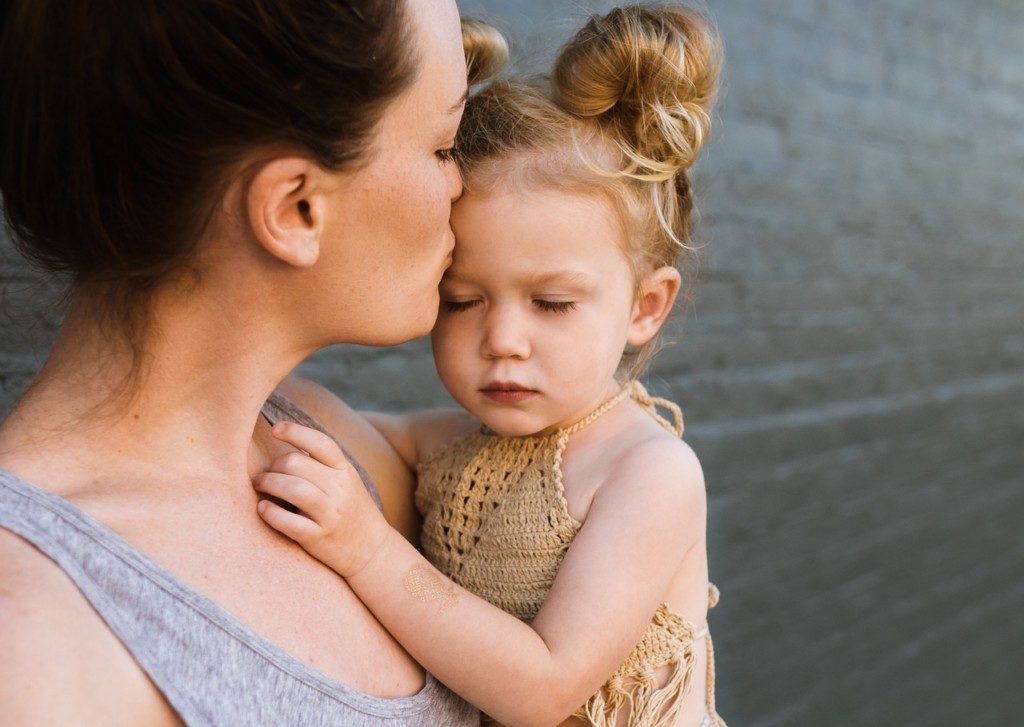Much has been written about the best ways to teach children how to respect adults in their lives. It is a widely accepted value of our society for kids to know when to speak to adults, how to comply with authority figures, polite words and phrases to use when making requests, and the appropriate tone and demeanor to use in order to demonstrate respect. The culture in the South especially tends to pride itself on its manners and many parents place great importance on teaching children to address adults as “ma’am” and “sir.” There is a great deal of discussion about children today lacking proper respect for authority and the ensuing problems it can cause in school and later on in careers and relationships.
I agree that teaching respect for oneself and others is one of the most important values we can instill in our children, but I believe that, like many parenting lessons, respect is best taught through modeling.
If we want our children to treat adults and peers in their lives with respect, we must show them from day one that we respect them as people. What this looks like in our daily interactions will obviously change as children age and go through different phases of life. I have not yet reached the tween or teen years with my kids and I’m sure they will test every resolve and parenting ideal I now hold.
Here are some of the ways I make it a priority to show respect to my children. I hope that laying this foundation now will help us navigate the boundary testing and authority defying which is sure to come in the teen years.
1. Validate kids’ feelings and always respect their fears and boundaries.
This can begin in infancy simply by responding to their cries, even when it seems that every need they have is being met. Little people have big emotions, often made more explosive by the lack of language at their disposal to explain their feelings. Saying things like, “I know that was frustrating” or “I understand you’re upset it’s time to leave” helps diffuse my son’s toddler tantrums like nothing else. He may still be upset, but at least he doesn’t feel as out of control and as though I am forcing something upon him without considering his viewpoint. Similarly, I always try to respect when my kids have fears or apprehension around something. Even though I believe in gently helping them challenge themselves to try new, sometimes scary things, I respect the things that are a hard no. For our family this looks like never unexpectedly throwing our daughter into water or convincing her to ride an intimidating theme park ride just for the priceless picture the cameras are sure to capture. Most importantly, we absolutely never laugh at her fears, as illogical or humorous as they may seem to us as adults.
2. Try not to pull rank as a reason for requiring kids to do something.
As tempting as it is to simplify discussions with a simple, “Because I’m the adult and I said so,” I try never to use this as my reason behind something. The fact that I am older than my daughter and in a position of authority should not be my justification for requiring anything of her. If it is something she needs to do, there are always plenty of other, logical reasons I can explain to her which make it clear to her that I am not making arbitrary demands just to ruin her life.
3. Respect kids’ privacy by speaking positively to others about them and being intentional with the digital footprint I am creating for them.
One of the great benefits of having close family or a mom tribe is the resources and support they can offer when we are going through difficult phases with our kids. I believe in having a few trusted friends or family members that I can be very real with in sharing my kids’ problematic behaviors and struggles. However, I am very selective in who I choose to trust and only share as much as is needed in the seeking of advice. I try not to tell embarrassing stories involving my kids simply for the laugh I know they can get and definitely don’t share them with as wide an audience as my social media accounts. My kids may never know that I shared something embarrassing, but I still feel that it disrespects their privacy and view it in the same light as saying or sharing humiliating stories about my spouse. Similarly, I try to avoid teasing them in person about things I can tell embarrass them even if it’s something I just view as cute.
4. Keep my promises.
My daughter remembers every single thing I have ever mentioned I might do with or give to her. I have to be very careful not to casually say we might go somewhere or play some game on the weekend if I have no intention of following through when the weekend comes. I do my best not to flake on friends or family whom I have made plans with and I think it shows that I respect my kids’ time and feelings when I make it a priority not to go back on a promise to them either.
5. Allow kids to have a say in what happens to them when it is possible and safe to do so.
There are often errands that have to be run or chores that need to be done vying for my limited time with my kids. I know that they too often have expectations and desires for their days at home so I attempt to consider these as I plan our days. I give them choices about what they would like to get done first or which day they’d rather help with a chore (when timelines allow). I still manage to get done what I have to, but they feel that their wants and needs are being validated instead of feeling powerless or like what they want doesn’t matter simply because of their age.





















